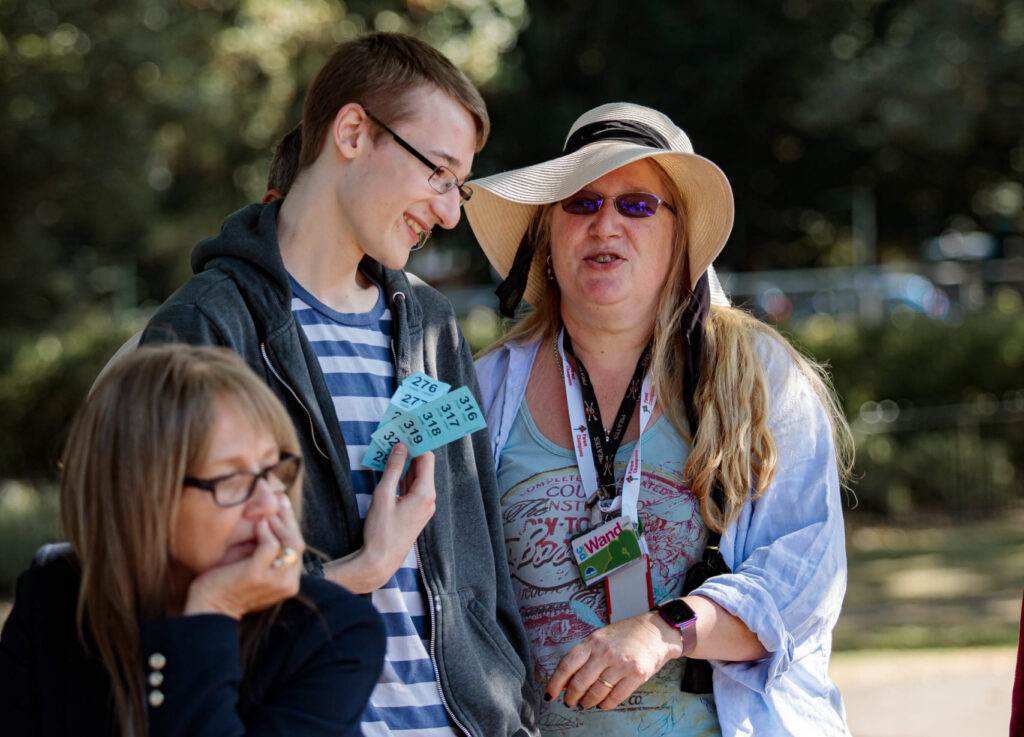Wills & trusts
This advice applies across the UK.
Writing a will and including a trust can help give some reassurance that the person you care for is provided for when you’re no longer there. It may prove to be an emotional and challenging experience, but the outcome can offer peace of mind.
In this article
Why should I write a will?
If there isn’t a will after you die, the rules of intestacy apply to the estate that you leave behind.
This will vary depending on where you live in the UK. It will also depend on whether you’re married or in a civil partnership, and what joint ownership you have. Information on inheritance if there is no will is available on the government website.
Making a will means that your wishes about the things you leave behind – known as your estate – will be clear. A will is also your opportunity to say who you want to look after any children or support the care of vulnerable adults, and to enable you to give instructions for your funeral.
Do I have to use a solicitor?
No, you don’t need a solicitor to write your will. However, a will is a legal document, so it needs to be written and signed correctly.
If you decide to make your own will it’s best to seek advice first. As well as solicitors, professional will writers, banks and some charities provide a will writing service. Contact your local carers’ support organisation or search for a local advice agency for advice before starting to draw up the will.
Always check fees with a solicitor before asking them to do work for you. A simple will may cost a few hundred pounds, but a specialist will, involving trusts, overseas properties or tax planning, can cost much more.
Will writing templates are available online and in stationery shops, but you should make sure these are relevant to law in the country you live in.
What should you include in your will?
Many people feel they don’t have much to leave, but it can add up to more than you think.
Take into account:
- Your house and its likely value at the time you die.
- Value of the contents, particularly any special belongings or collections.
- Belongings such as your car, bike, computer and any sports equipment.
- All bank and building society accounts.
- Any other savings, e.g. National Savings Certificates, Premium Bond, ISAs.
- Life policies and pensions.
- Particular items, for example family jewellery or anything with sentimental value
You may also want to make particular bequests, for example to a friend who has supported you over the years, or to a charity.
The age at which a young person can receive their inheritance varies cross the UK nations. Until then, trustees manage the inheritance on their behalf.
Leaving money to someone who has a disability
It’s important to get expert advice if you want to leave money or property to someone who can’t manage their own finances, or who depends on benefits for a large part of their income.
Leaving money or property to someone isn’t always straightforward. It could affect their eligibility for means-tested benefits or social care support. That could mean something you intended to help them actually leaves them in a more difficult position. Even a solicitor may not always understand the impact on someone’s eligibility for certain benefits or support.
You can search for local advisers by using the Turn2Us find an adviser tool.
Setting up a trust
One way to guard against the complications of leaving money in a will is to set up a trust, either during your lifetime or in your will.
Using a will trust can help you to look after a disabled relative in the future so that it does not affect their benefits. If your loved one is vulnerable or lacks capacity, a will trust can also help to protect them from financial abuse and support them if they need someone else to manage their finances.
Seek specialist legal advice from a solicitor if you are considering setting up a trust. They will explain the different types of trust in more detail and guide you to the right choice for you and your family.
Where can I find out more?
- Will and Trusts information from Scope.
- Citizen Advice’s guide on wills.
- Making a will at gov.uk.
- Making financial plans – Foundation for People with Learning Difficulties.
- Mencap’s wills & trusts service.
Related information

Benefits at 16
You may be able to continue claiming benefits for your child when they turn 16 or help them claim benefits.
Read more
Benefits calculator
Use theTurn2Us benefits calculator to find out what benefits and other sources of financial help you might be entitled to.
Read more
Parental responsibility & mental capacity beyond 16
As your child gets older, you might have to decide whether they're able to make decisions for themselves. If not, there may…
Read more